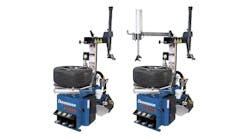Balkrishna Industries Ltd. (BKT) focused on the future of agriculture in the first in a series of expert presentations covering global trends in the marketplace.
The first session, “Agriculture Technology and Smart Farming” included looks at various “agritech” options and opportunities around the world.
Omer Kuloglu, an agriculture journalist in Turkey, said cost is barrier to more Turkish farmers using the latest technology, but he estimated that 1% or 2% of farmers there do adopt and use the latest tools. Most of that technology is coming from Europe and North America, he says.
In the U.S., Amy Wu, a documentarian and founder of the platform From Farmers to Incubators, says she sees agritech (simply, a phrase to describe technology in agriculture) as a way to diversify the farming workforce. The technology will require new kinds of skills related to STEM education.
She sees technology as an avenue to help farmers who are facing threats — from climate change, from water and land shortages, severe droughts in California and wetter-than-normal conditions in the Northeast. Wu also says field workers are aging out and the next generation isn’t wanting to return to the fields.
“Agritech can help develop seeds that are more farmer friendly, seeds that require less water, deter more pests,” she says. There are also ways to monitor and tracks bees and beehives, which is important to almond growers in California.
Simone Scarabel, founder and technical sales manager for Free Green Nature, talked about his company’s farming robot, and the possibilities of robots in the field.
He’s hopeful “in a few years it will be normal to see a robot in the field as it’s normal to see a tractor today.”
David Rose, a professor of agricultural innovation at the University of Reading in the U.K., says among the most important steps to take is “to support farmers to adopt the technology (and) provide grants and training for them to use (it.)”



